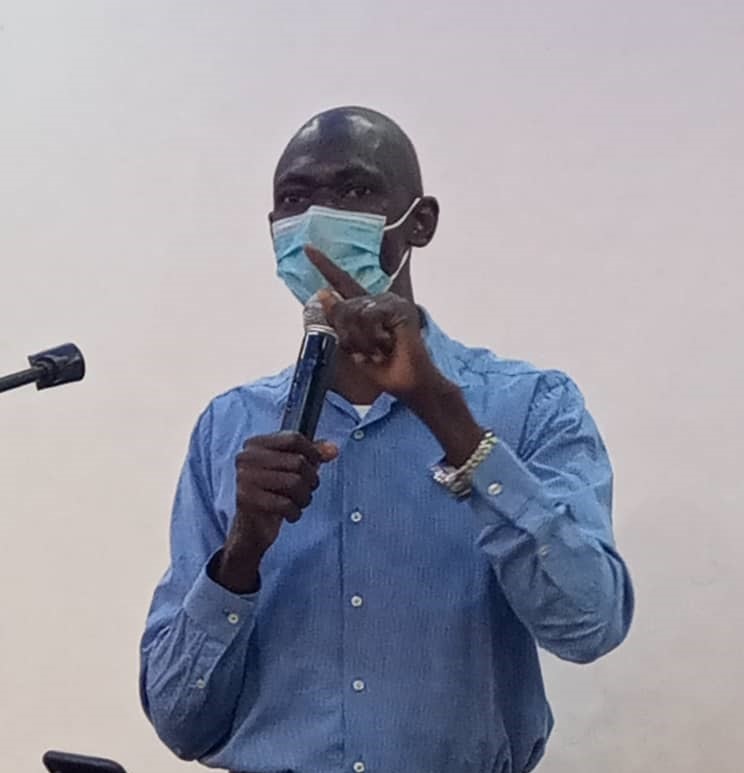
Horror Tales From South Sudan’s Tombura As Communities Flee Crisis

By Onen Walter Solomon
On a dark cold night, South Sudanese Arkanjelo Bundu was forced to flee the warmth of his bed as gunshots rang in his neighborhood.
“Around 12 o’clock, there was a gunshot just near my house, the bullet was just over my house so I thought twice not to stay in the house so that the bullets do not get to my children,” Bundu told Juba Echo in an interview from Tombura Parish of the Catholic Diocese of Tombura-Yambio where he sought refuge.
Bundu fled a new conflict in Tombura County in the country’s Western Equatoria State that is picking up momentum, pitting area youths against the communities.
“Also at night, people sometimes burn houses on people,” he said.
“I thought that if my houses burnt at night where my children are, some of them would get burnt in the house.”
Continuous attacks on communities in Tombura County has caused “massive destruction, killings, displacements, humanitarian needs and worries” to the population, religious leaders in Western Equatoria warned.
“The rapid increase and expansion of the breakdown of law and order, violence of all types changing from worse to worst every hour in Tombura town, the headquarters is appalling,” a joint statement by Samuel Peni, Archbishop of Yambio Episcopal Curch of Sudan and Western Equatoria Internal Province, and Barani Edwardo Hiiiboro Kussala, Bishop of the Catholic Diocese of Tombura-Yambio, said.
They questioned the silence of the government while “communities turn harmful weapons against themselves.”
According to Fr. Bie Emmanuel from Our Lady Help of Christian Catholic Church, the church has received close to 4,710 people seeking shelter early last week.
“They have occupied the church building, the shelter that we use for the sheep, Saint Mary Primary School, Saint Benedict Secondary School, Christ the King Kindergarten and all the buildings surrounding the church,” he said.
“Some are sleeping outside.”
Many people fled the violence into the bushes and are only coming out cautiously, Fr. Emmanuel said.
“If they get anyone coming from the farm, he or she is kidnapped, maybe beheaded or survives by the mercy of God,” he said.
For those holding out in the church compound, latrines are limited and “the majority of the people are using the surrounding bushes,” Fr. Emmanuel said.
Philip Aguer Panyang, a conflict analyst and assistant professor in the Department of Security and Strategic Studies at the Institute for Peace, Development and Security Studies, University of Juba told Juba Echo that a quick remedy must be sought to the problem.
“If it’s communal, then definitely the national government has to send a delegation to mediate between the two parties with their communities,” Panyang said.
“Knowing some of the parties or movements that have political affiliation related to some parties in Juba will make it easy for the government to address it,” he said.
“So it needs a quick intervention so that innocent lives are preserved since they are indiscriminately attacking civilians.”
Western Equatoria State Information Minister William Adriano Baiki told Juba Echo that the state authorities are on the ground establishing facts in order to resolve the issue.
Baiki warned the situation is of concern, not only in Tombura but the capital Yambio too.
“In terms of ‘displacements, rampant killing, raping, burning of the houses and mass destruction of property in Tombura County, it is true,” he told Juba Echo.
According to him, the conflict started in May when youths loyal to one Gen. James Nando Mark mobilized in Bariguna village, moved through Mabenge village and Tombura to fight SPLM/A-IO forces in Namatina cantonment site in Nagero county, about 61 kilometers to the northwest.
“On the process they started raping, eating people’s goats, even arresting, abducting youths on the road,” Baiki said, noting that the irate youths killed two people and had to be intercepted and pursued by the IO.
The situation prompted State politicians to hold an urgent meeting in Tombura, between June 24-29, with community leaders, the interfaith council and the security organs.
According to Baiki, the communities want the IO cantonment site relocated from Tombura because the soldiers are destructive.
They also demanded that soldiers loyal to Gen Nando be relocated from Yambio Airstrip and Source-Yubo to Maridi under the direct command of SSPDF Division 6, he said.
He also said the communities demanded area politicians to resolve their differences and that all displaced people must return home.
Overall displaced are over ten thousand people, in the church, in the bushes and in neighboring communities, Baiki said.
Gizam Moses, the Executive Director for a local Non-governmental Organization, Humanity and Community Empowerment Organization blamed the youths for listening to too much misinformation and spreading of hate speech on social media “which are not contributing to peace.”
“We are actually now lobbying for small resources to be able to convene a youth forum in Juba and then extend the same in Yambio and Tombura to discourage the youth from the use of misinformation and spread of hate speech. Youth are the victims of this violence,” Gizam said.
“At the same time the youth doesn’t understand that when they spread hate speech, they become the victims of both the violence and future hatred which results from the misinformation on social media.”
According to Fr. Bie, the World Food Program has partnered with the church to mobilize local resources but could assist less than a hundred households.
And for Bundu, no assistance has reached him and his ten children hiding in the church compound one month on.
“There is remnant of the food that we ran with. That is what we are consuming these days and it is almost over so we are struggling on our own just to get something we can eat per day,” he told Juba Echo.
“We are sharing the same room with my family, we are just lying on the ground without anything on us for all this period of one month now.”



































